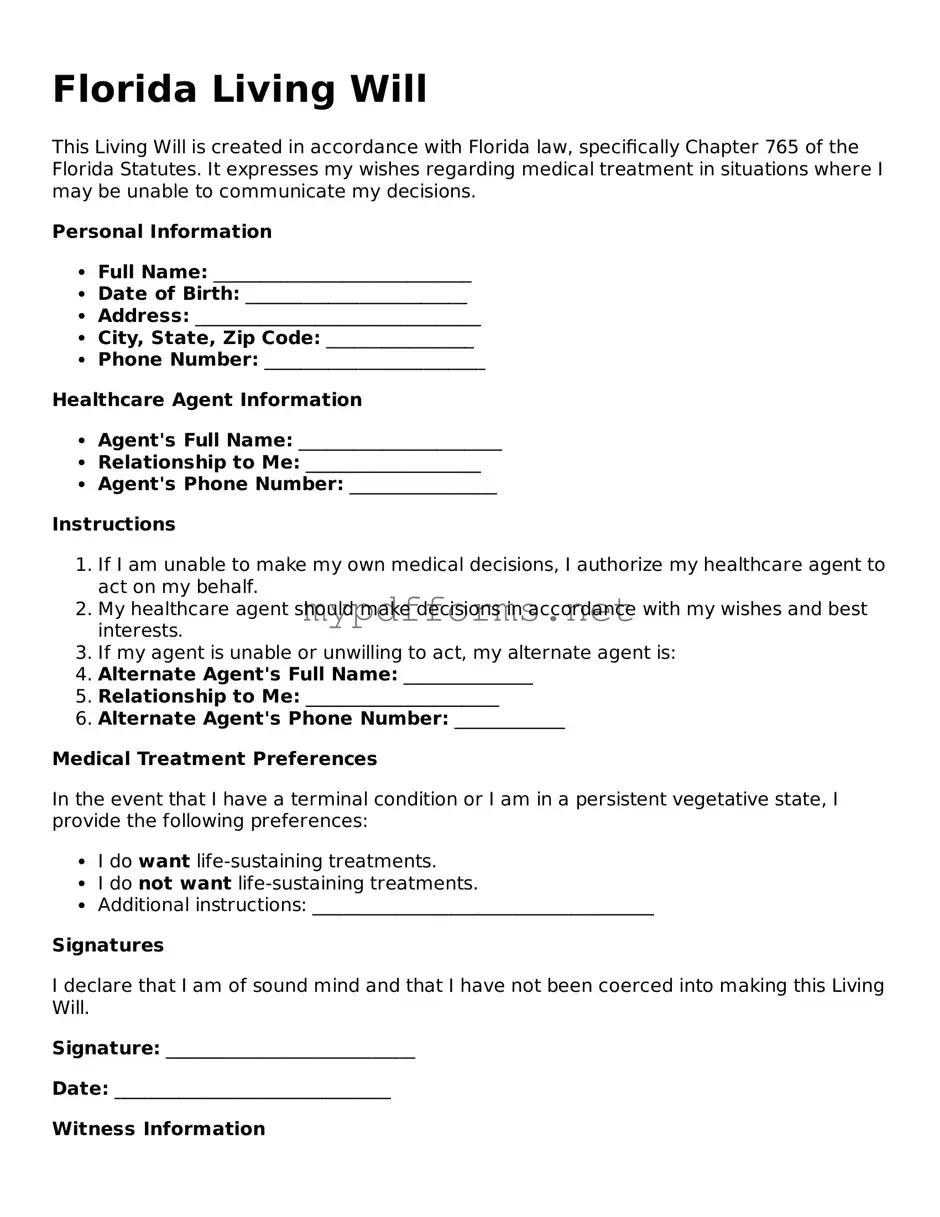Attorney-Verified Living Will Document for Florida
A Florida Living Will form is a legal document that allows individuals to outline their preferences for medical treatment in the event they become unable to communicate their wishes. This form ensures that a person's healthcare decisions are respected and followed, providing peace of mind for both the individual and their loved ones. To take control of your healthcare decisions, consider filling out the form by clicking the button below.
Modify Document Here

Attorney-Verified Living Will Document for Florida
Modify Document Here

Modify Document Here
or
⇓ PDF
Need to check this off quickly?
Edit and complete Living Will online in just a few steps.